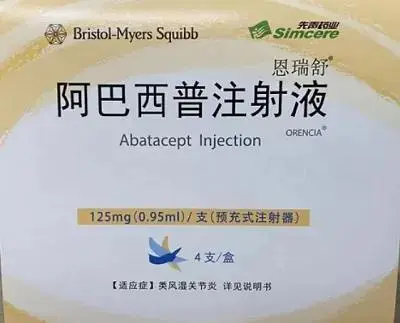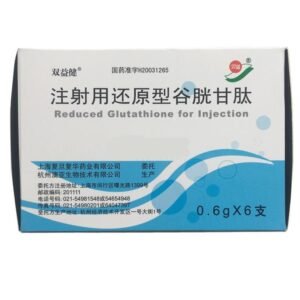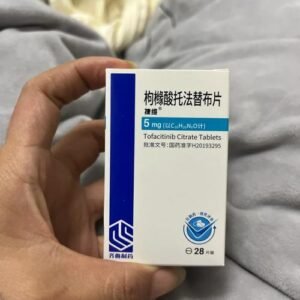Abatacept Injection
Indications
This product is suitable for adult patients with moderate to severe active rheumatoid arthritis who have not responded adequately to one or more disease-modifying antirheumatic drugs (DMARDs), such as methotrexate and tumor necrosis factor (TNF) blockers. This product can delay the progression of structural damage caused by the disease, improve the patient’s physical function, and alleviate the patient’s signs and symptoms. [1]
This product is a selective T cell co-stimulatory regulator that inhibits T cell activation by binding to CD80 and CD86 on antigen presenting cells. Activated T cells are related to the pathogenesis of rheumatoid arthritis (RA). They are present in large numbers in the synovium of RA patients. Full activation of T cells requires at least two signal transductions from antibody-presenting cells, among which the interaction between CD28 on T cells and CD80 or CD86 on antigen presenting cells is the key step in co-stimulatory signal transduction. This product binds to CD80 and CD8 on antigen presenting cells, thereby blocking the interaction between the two and CD28 on T cells, thereby inhibiting T cell activation.
Clinical studies have shown that when the dose of this product reaches about 10 mg/kg, the levels of soluble IL-2 receptor (sIL-2R), IL-6, rheumatoid factor (RF), C-reactive protein (CRP), interstitial metalloproteinase-3 (MMP-3) and TNF-α in plasma all decrease. However, the correlation between the changes in the levels of the above biological response markers and the effect of this product in treating RA remains to be clarified. [1]
Adverse Reactions
The most serious adverse reactions of this product are serious infections and malignancies. The most common adverse reactions (incidence ≥ 10% in the treatment group) are headache, upper respiratory tract infection, nasopharyngitis and nausea. The most common adverse reaction requiring clinical intervention (interruption or discontinuation of this product) is infection. The most common infections requiring interruption of treatment are upper respiratory tract infection (1.0%), bronchitis (0.7%) and herpes zoster (0.7%). The most common infections requiring discontinuation of the drug are pneumonia (0.2%), local infection (0.2%) and bronchitis (0.1%). [1]
Precautions
Share:
Products
Our offers
Health Classification
Let us work together to protect precious health




























